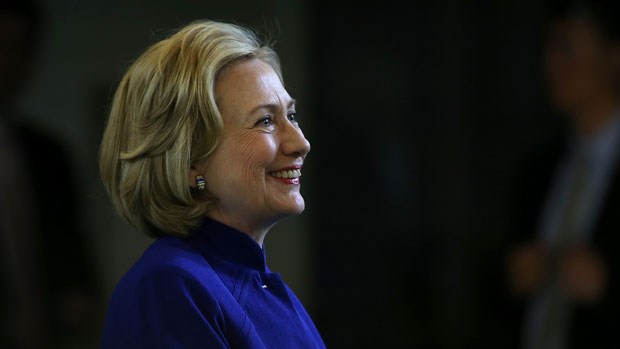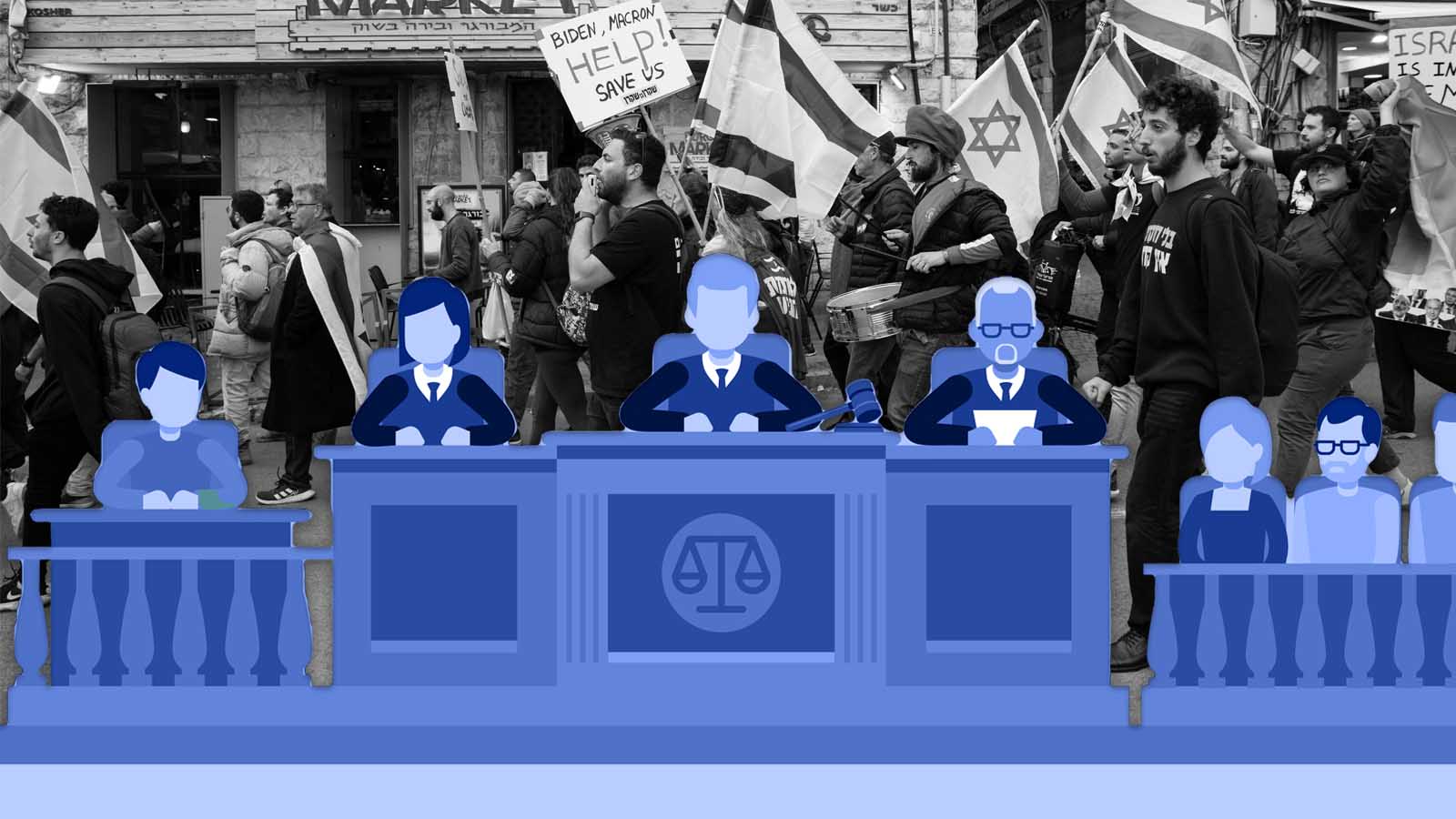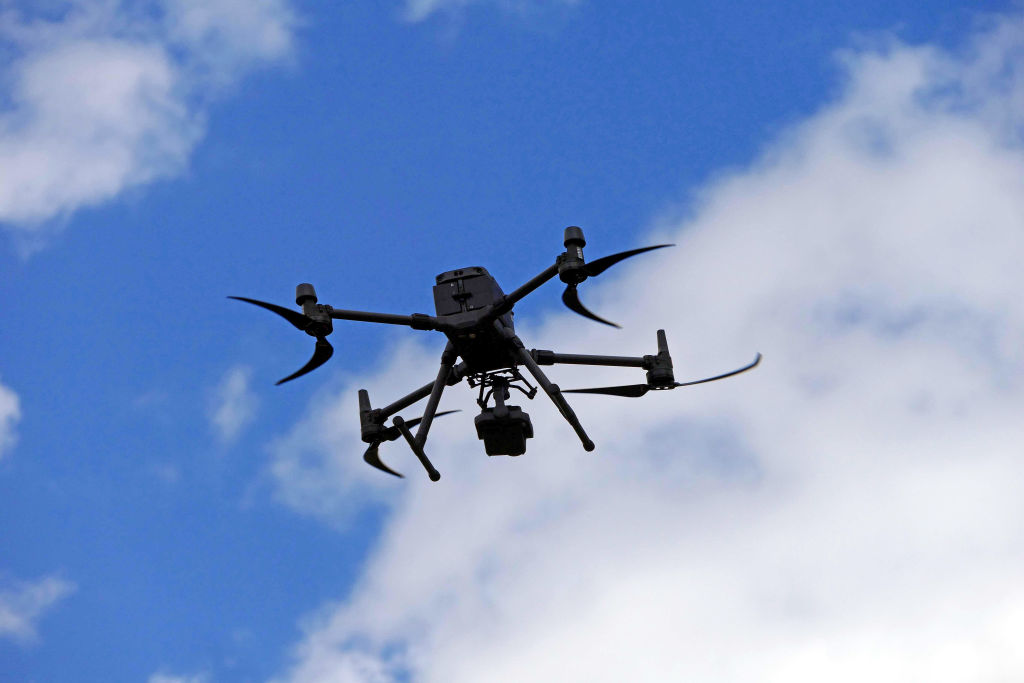Hillary Clinton risks being left behind by young Americans
As Clinton pledges support for Israel, Generation Millennial more likely to sympathise with Hamas

A free daily email with the biggest news stories of the day – and the best features from TheWeek.com
You are now subscribed
Your newsletter sign-up was successful
Is Hillary Clinton as in touch with young Americans as she should be if she wants to run for the US presidency in 2016?
Since Israeli tanks rumbled into Gaza, Clinton has hurried between television studios and the offices of Washington’s Israel lobbies to blame Hamas for the bloodshed and pledge her fidelity to the Israeli cause.
“I think Israel did what it had to do to respond to the rockets,” Clinton told Atlantic magazine. “Israel has a right to defend itself."
The Week
Escape your echo chamber. Get the facts behind the news, plus analysis from multiple perspectives.

Sign up for The Week's Free Newsletters
From our morning news briefing to a weekly Good News Newsletter, get the best of The Week delivered directly to your inbox.
From our morning news briefing to a weekly Good News Newsletter, get the best of The Week delivered directly to your inbox.
Once upon a time, Clinton incurred the wrath of Israel and its American supporters by declaring her sympathy for Palestinians. In 1998, when First Lady, she went so far as to publicly embrace the late Palestinian leader Yasser Arafat’s wife Suha.
Her new hawkishness is designed to distinguish her from President Obama and is among the biggest clues yet that she will declare her candidacy in the 2016 race for the White House.
Israel’s wars have long been part of the fabric of American domestic politics. This is partly because America has been the ultimate guarantor of Israel’s survival, partly because of the deep links between Israelis and American Jews, and partly because Americans of all stripes see Israel through the lense of Protestant mythology - the New Jerusalem – as a beacon of democracy and free trade.
The mantra has been that you cannot hope to win the White House without the support of the Israeli lobbies. But is that about to change?
A free daily email with the biggest news stories of the day – and the best features from TheWeek.com
Latest polls show that 53 per cent of the Millennial generation – Americans younger than 34 – favour Clinton among the likely presidential candidates. That is a useful advantage, and more useful with each passing year as more Millennials reach the age of 18 and get the vote.
But the same polls also show that Millennials are resisting the Israeli line and switching sympathy to the Palestinians.
Gallup asked Americans whether Israel's recent attacks on Gaza were “justified or unjustified”: among over-65-year-olds, 55 per cent declared Israel justified, against to 31 per cent who felt it was unjustified. But among Americans aged between 18 and 29, the result was almost exactly the opposite: 51 per cent felt Israel's actions were unjustified, while only 25 per cent found them justified.
Pew asked whether Israel or Hamas “bears greater responsibility”: overall, Americans blamed Hamas by 40 per cent to 19 per cent; but among those aged 18 to 29, 29 per cent blamed Israel and 21 per cent Hamas.
The development is remarkable not just for the crack it reveals in the once unassailable support for Israel right or wrong, but for what it tells us of America’s rising generation.
They really do seem to be different.
In March this year, Pew published a social trends survey which concluded that the Millenials were “forging a distinctive path into adulthood”. They did not join political parties or churches, lived largely beyond the corporate world, and were mostly broke but still had hopes for their future.
“Now ranging in age from 18 to 33 ½,” the report found, “they are relatively unattached to organised politics and religion, linked by social media, burdened by debt, distrustful of people, in no rush to marry - and optimistic about the future.
“They are also America’s most racially diverse generation. In all of these dimensions, they are different from today’s older generations. And in many, they are also different from older adults back when they were the age Millennials are now."
Pew found that 50 per cent of Millennials now describe themselves as politically independent, but if they do back a party, it will be the Democrats. They hold "liberal views" on issues such as same-sex marriage and the legalisation of marijuana. Forty-seven per cent of children born to Millennial women are born out of wedlock.
They seem to be living differently and adopting different views and values partly because they have had to: they are the generation launched into a global recession with an unprecedented amount of college debt and few job prospects, the first generation to realise that the American Dream is going to remain just that.
They do not want to drive big cars or buy suburban mansions; they repopulate cities (when they can afford to leave the nest at all) and ride bicycles.
Perhaps most significant is that they are adapting to America’s rapidly shifting racial balance. Whites will cease to be an overall majority in America sometime around 2045. That projection is behind the anti-immigrant, right-wing rage of the Tea Party and its related militias. But it bothers the new generations of pink, brown and black Americans less and less.
In short, it is the Millennials who have helped consign the Republican politics of division – “Vote for us or your daughter will marry a black man!” – to the dustbin of history.
It has been calculated that Millennials will not have the majority of votes for another 20 years, and so will not have control of Washington until 2035.
But they have been a rising power since the first of them turned out for Barack Obama in 2008, and their share of the vote will go up in every cycle.
Which brings us to Hillary Clinton's second potential misjudgment – upsetting Barack Obama.
In the same interview in which she defended the Israeli right to defend themselves, she said that Isis – now the Islamic State – had grown from Obama's failure to arm the moderate Syrian rebels fighting the Assad regime. Obama reacted with unusual fury, describing her argument as "horsehit".
Alarmed that she had picked the wrong fight, Clinton’s aides hurriedly promised that she remained devoted to Obama and would be “hugging it out” with him.
A big hug for the Millennial Generation looks to be in order, too.
-
 Why is the Trump administration talking about ‘Western civilization’?
Why is the Trump administration talking about ‘Western civilization’?Talking Points Rubio says Europe, US bonded by religion and ancestry
-
 Quentin Deranque: a student’s death energizes the French far right
Quentin Deranque: a student’s death energizes the French far rightIN THE SPOTLIGHT Reactions to the violent killing of an ultraconservative activist offer a glimpse at the culture wars roiling France ahead of next year’s elections
-
 Secured vs. unsecured loans: how do they differ and which is better?
Secured vs. unsecured loans: how do they differ and which is better?the explainer They are distinguished by the level of risk and the inclusion of collateral
-
 Netanyahu’s reforms: an existential threat to Israel?
Netanyahu’s reforms: an existential threat to Israel?feature The nation is divided over controversial move depriving Israel’s supreme court of the right to override government decisions
-
 A country still in crisis: Lebanon three years on from Beirut blast
A country still in crisis: Lebanon three years on from Beirut blastfeature Political, economic and criminal dramas are causing a damaging stalemate in the Middle East nation
-
 The past controversies of Benjamin Netanyahu
The past controversies of Benjamin NetanyahuUnder the Radar The Israeli prime minister has been in hot water before
-
 Israel on edge, Netanyahu hospitalized ahead of Supreme Court overhaul vote
Israel on edge, Netanyahu hospitalized ahead of Supreme Court overhaul voteSpeed Read
-
 Jenin and the endless cycle of Palestinian displacement
Jenin and the endless cycle of Palestinian displacementfeature Refugee camp at the heart of a struggle around demographics, displacement and mobility
-
 Netanyahu brings Israel to a crossroads
Netanyahu brings Israel to a crossroadsfeature The prime minister was ‘forced to pause’ his ‘ambitious plan’ to weaken country’s supreme court
-
 Why are Netanyahu's judicial reforms so controversial?
Why are Netanyahu's judicial reforms so controversial?In Depth Opponents have warned the government's suggested reforms could be the end of democracy in Israel
-
 Israel reportedly behind drone attack on Iranian military-linked warehouse in Isfahan
Israel reportedly behind drone attack on Iranian military-linked warehouse in IsfahanSpeed Read